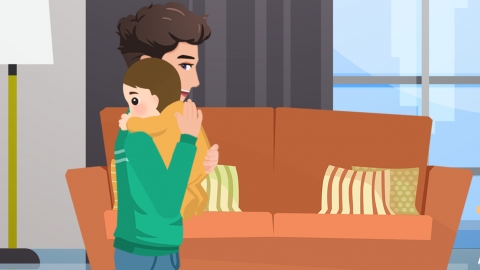Why does a child cry a lot and seem timid?
Children who cry frequently or are timid may be experiencing these behaviors due to innate personality sensitivity, lack of security, poor adaptation to environmental changes, childhood anxiety disorder, or social phobia. These issues can be improved through emotional comfort, environmental guidance, and medication. If symptoms persist and affect daily life or are accompanied by sleep disturbances, timely medical consultation is recommended.
1. Innate Sensitivity: Some children are naturally neurologically sensitive and may react fearfully to unfamiliar things or sounds, often crying over minor issues. Parents are advised to be patient and encouraging, avoid forcing the child into feared situations, and gradually guide them toward adaptation.
2. Lack of Security: Prolonged absence of companionship or a tense family atmosphere can leave children feeling insecure, leading them to express distress through crying and showing timidity in unfamiliar environments. Parents should spend more time interacting with their child, create a warm and supportive family environment, and provide adequate psychological support.

3. Poor Adaptation to Environmental Changes: Frequent changes in living environment or exposure to unfamiliar settings can make it difficult for children to adapt quickly, resulting in anxiety, frequent crying, and avoidance of new surroundings. It is recommended to prepare the child in advance for upcoming changes and gradually introduce them to new environments to minimize psychological stress.
4. Childhood Anxiety Disorder: Prolonged mental stress can lead to abnormal emotional regulation, manifesting as frequent crying, excessive fear of various things, and accompanying symptoms such as sleep disturbances and difficulty concentrating. Under medical supervision, medications such as sertraline hydrochloride tablets, fluoxetine dispersible tablets, or diazepam tablets may be used to relieve symptoms.
5. Social Phobia: Children with social phobia experience intense fear in social situations, avoid interactions with others, and may cry or withdraw when faced with social encounters, often accompanied by blushing and rapid heartbeat. Patients may take medications such as paroxetine tablets, fluvoxamine tablets, or alprazolam tablets as directed by a physician to improve symptoms.
Encourage children to participate in group activities, support their independent attempts at small tasks, promptly acknowledge their progress, avoid criticism or blame, and foster an inclusive growing environment to help build their self-confidence.




